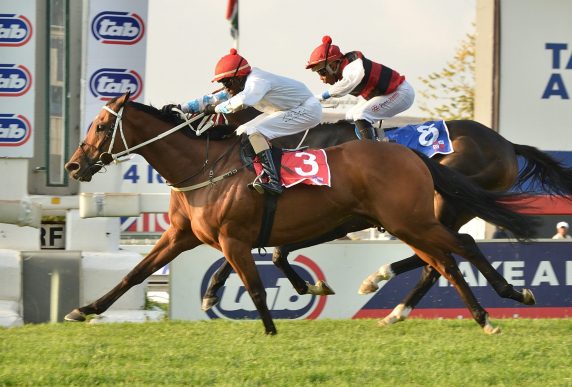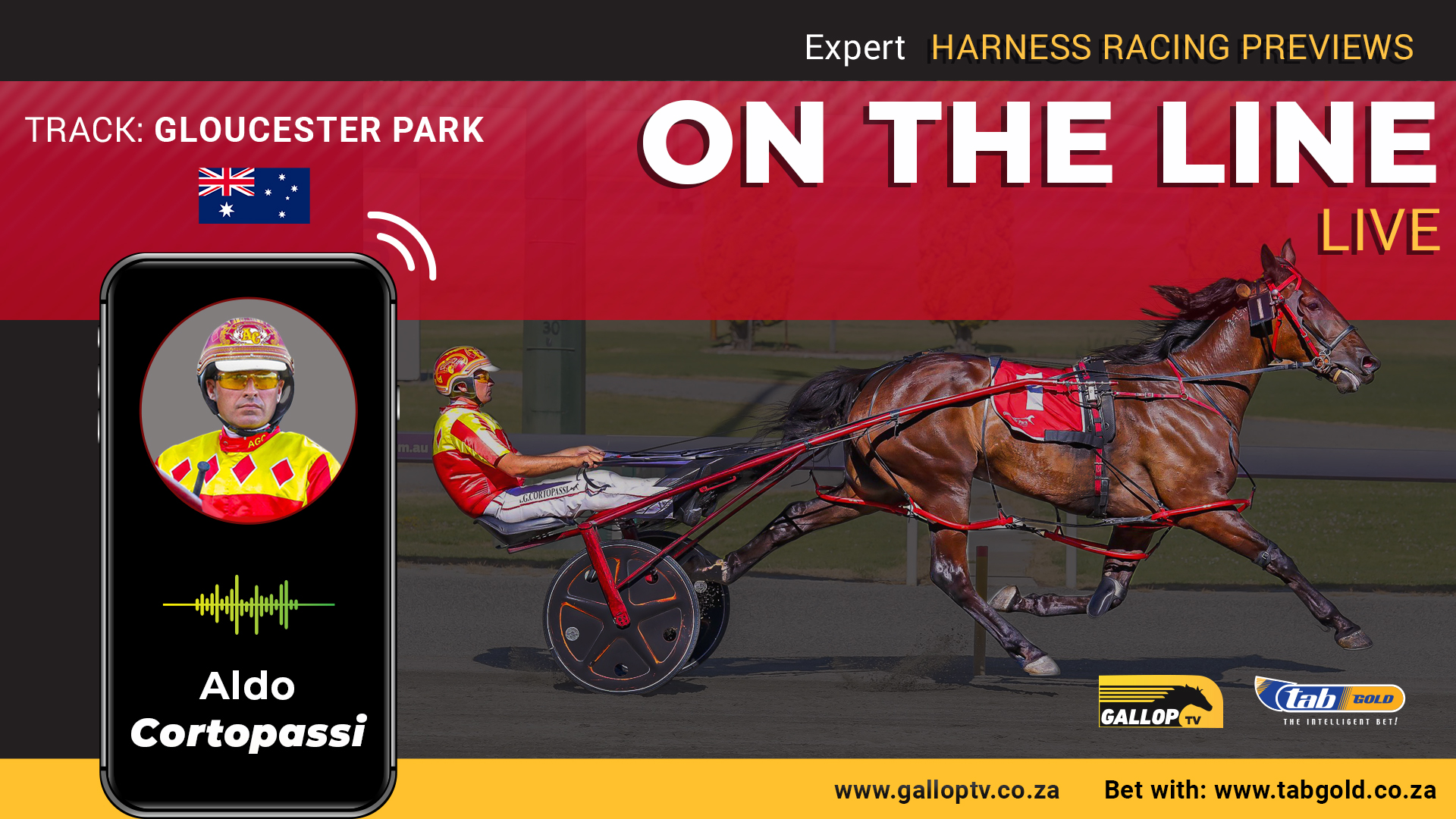Racing is busy losing its all-time most important tussle, the race against time to keep the sport from fading into obscurity, suggests Leon Smuts.
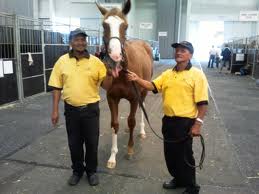 This is a race that can and must be won given the significance of racing as an economic provider for so many, and the potential as a growing and extended source of employment in years to come.
This is a race that can and must be won given the significance of racing as an economic provider for so many, and the potential as a growing and extended source of employment in years to come.
People often ask why I am involved in trying to find solutions for racing, when then are so many other more lucrative forms of wagering that I could be spending time on.
This is a valid question if my reason for getting involved was purely economic and if my love for the sport, its people and creatures could be discarded.
Seeing horses run and the fantastic emotion it creates in everyone involved is something that begs to be preserved for future generations.
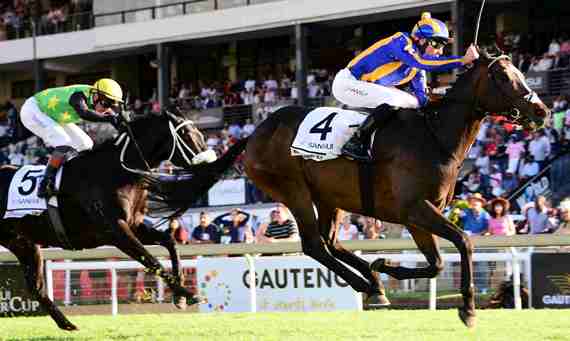
It is simply a thing of astounding beauty with great presence and natural poise and the most epic drama imaginable playing out in front of us daily.
Such a pity that the dilemma in racing has come down to a balancing act of having to match a love for horses with economic expectations and the difficulty that this has presented, especially over the last 20 to 30 years.
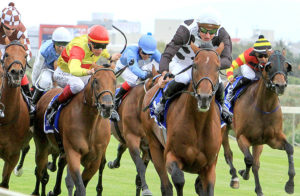 There is an on-going tug of war between the purists in the sport and those exclusively seeking profit from its existence, and with the expectation gap becoming too big, is causing a widening rift between the different stakeholders.
There is an on-going tug of war between the purists in the sport and those exclusively seeking profit from its existence, and with the expectation gap becoming too big, is causing a widening rift between the different stakeholders.
The growing discontent is there for all to see with a few recent initiatives to try and grasp control back from the empire.
If ever there was a need to work together to find solutions that will satisfy both sides, it is right now. Unity is strength and together, with a dedicated effort, it would be possible to satisfy the needs of the majority involved in racing.
Why is this so hard for the powers that be to recognise and support?
Whilst betting operators have to factor in the bottom line in all decisions that they make it does not unburden them from campaigning for the best results for all, which must include searching for and finding lasting solutions for racing.
![]() What could their results look like if they successfully championed a racing revival?
What could their results look like if they successfully championed a racing revival?
There is simply no excuse for turning a blind eye to racing’s needs whilst longer term solutions are available.
Why do I still believe in racing’s ability to be profitable given its many detractors and clear and continued evidence of sub-economic performance?
Three things stand out and should not be ignored by betting operators:
- From a content perspective racing has no peers with quality material available almost 24/7 year round
- Races has a far more differentiated outcome potential than most other sport which from a wagering perspective presents a high quality dividend and betting opportunity
- As a game of skill racing produces long term annuity income that is second to none and the average age of punters attest to this as skilled players seldom leave the game
The above points suggest an exceptional business opportunity, that if correctly approached will provide meaningful bottom line performance and growing economic returns.
 The only thing that has stood and is standing between racing and making loads of money is a chronic, self-inflicted inability to market the sport effectively to new players.
The only thing that has stood and is standing between racing and making loads of money is a chronic, self-inflicted inability to market the sport effectively to new players.
Until operators make a clear distinction between turnover growth and customer growth in its objectives the sport will always come up short of its still considerable potential.
From a marketing perspective operators show a frustrating lack of understanding and/or desire in terms of promoting racing as a medium for economic gains.
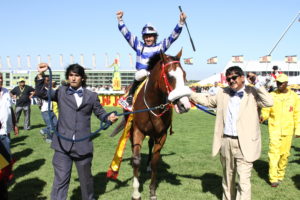
Every marketing initiative focuses almost exclusively on getting people to the race track and despite great success in doing this on big race days the conversion rate of the crowd into customers remains at almost zero.
This is to be expected, as despite our love for the game, racing will never be a true spectator sport comparable with other mainstream sport like football, cricket, tennis or rugby. A minute to two minutes of action in between long periods of inactivity puts paid to any notion of successfully promoting racing as a vibrant crowd puller.
This reality should be accepted and be the catalyst for a redefined marketing effort focussing on promoting racing as an activity ahead of the unsuccessful efforts to market it as an attraction.

Marketing the big race days should be continued as large crowds are a good advertisement, but getting people to play must take centre stage in any promotional exercise.
Once people participate by playing or owning a horse, races provide considerable spectator value.
So what then is needed to market racing successfully?
Most importantly, a more creative set of products that have been specifically designed to provide both players and operators with advantages which are clear and tangible.
It is a fallacy to believe that what is good for the one will naturally be bad for the other as it is plausible to design and offer products packed with mutual benefits.
What would players and specifically inexperienced novices want to see?
- More entertaining involvement
- Greater affordability and value for money
- Games producing more winners
- More opportunities per game to win
- Opportunities to win big on occasion
- Games that are ultimately fair to players
- To be competitive
- Vibrant social interaction
- Easier access and modern technology
- Data and useful information
- Educational self-help programs
- Value add services
What do operators want from new games?
- Strong customer growth
- Large and active customer base
- Rapid pool growth
- Greater pool liquidity
- Churn supportive formats
- Games that promote regular and longer term involvement
- High yield opportunities
- Lower cost structure
Closely matching these wants and needs in new formats, will provide a highly marketable product, and would make it a fairly simple exercise to build a new customer base for the benefit of both racing and the operator’s bottom line.
Without new customers no business can thrive and no business model that ignores this very important function could ever be optimal. There is an interesting correlation between skill and the level of wagering per player.
 As skill develops there are exponential gains for the operator in terms of the contribution received per player.
As skill develops there are exponential gains for the operator in terms of the contribution received per player.
This is because skilled players are likely to play regularly and place more meaningful wagers as their confidence grows and with more frequent wins obtained.
This suggests that even though capacity building will take time, the end result holds a lot of promise and will make it a very worthy and profitable exercise.
Overcoming the learning curve hurdle is the single biggest challenge that any new product must address to make customer acquisition a realistic pursuit.
Operators should accept that new customers will not make an immediate impact to their bottom line but that as skill develops they will gain exponentially and ultimately have access to years of annuity income.
This is why capacity building must be treated as a perpetual exercise and should not be neglected in growth strategies. Racing has already lost two or three generations of players because of complacency but there is still time to rectify this if acting now.
 As far as product design is concerned nothing is more important than players and the playing experience as the bottom line will gain naturally if this is taken care of.
As far as product design is concerned nothing is more important than players and the playing experience as the bottom line will gain naturally if this is taken care of.
Well-designed game formats will include inflation hedge components to ensure that individual games remain profitable long after customer growth has started slowing down.
I am appalled at the lack of marketing support that racing receives from operators as it has so much to offer them with a dedicated approach.
It must surely be time to do away with token programs that re-enforces the belief in racing’s failings and rather invest these funds in programs researched and designed to succeed.
 Impressive results could be obtained within a two to five year period and will lay an effective foundation for long term gains in both customers and revenue.
Impressive results could be obtained within a two to five year period and will lay an effective foundation for long term gains in both customers and revenue.
Hong Kong is always touted as the racing model to aspire to but it is a difficult one to replicate elsewhere. This should not stop other jurisdictions from finding their own racing solutions as it would greatly enhance any operator’s reputation, standing and bottom line if they supported and succeeded at this vital function.
At the moment there are very few creative and committed participants sporting racing’s colours, but those willing to run this very important race to the finish will come out most impressive and enviable winners.






